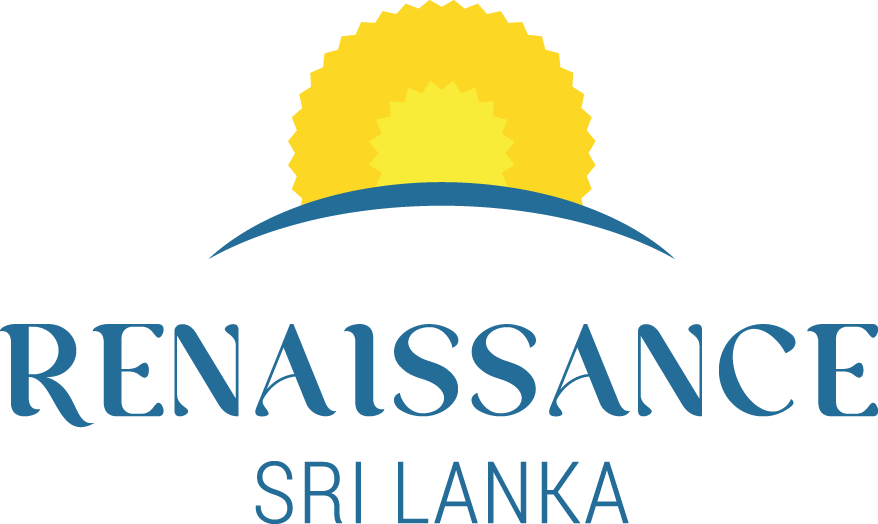
Renaissance Sri Lanka empowers women in Sri Lanka through its sustainable development projects
The current situation
According to the World Bank (2022), growth and poverty reduction in Sri Lanka have slowed since 2018. With unmanageable debt and a severe balance of payments crisis, Sri Lanka is in the worst economic crisis ever, with a detrimental effect on growth and poverty.
In such a situation, women’s empowerment is crucial for the social and economic development of families, and communities. Women can achieve their greatest potential when they lead safe, satisfying and successful lives. They can raise happier, healthier children and contribute their skills to the workforce. They can also support healthy economies, advance societies and benefit all of humanity.
Discover below two major programs of Renaissance Sri Lanka conducted with its partners WDC (Women’s Development Center of Badulla) and MONLAR (Movement for Land and Agricultural Reform), which directly improve food sovereignty and security that are now severely impacted due to the current economic collapse in Sri Lanka.
The project “Sustainable Income Generation for 100 Sri Lankan Women through Dry Food Community Businesses” exemplifies the empowerment of Sri Lankan women and the contribution to improving rural economic development
To learn more about our project, click here.
With the collaboration of our partner WDC, Renaissance Sri Lanka and WDC have conducted all its training programs.
The first training program was held in Badulla District, in Muthumala village
Giving smiles on faces is the most precious thing we can ever do together. The place, Muthumala village of Hinnarangolla grama niladhari division in Badulla district, is where Renaissance Sri Lanka and WDC met and chose the fifteen passionate Sri Lankan women on November 18, 2022, for the food preservation program. Despite all the difficulties, these women will soon be operating collective dry food businesses to feed the entire nation.

The second training program was held in Badulla District, in Wabadda village
The women of Wabadda village of Kandagolla grama niladhari division in Badulla district of Sri Lanka, are fully determined to learn. This is an effort they make to be economically robust. Renaissance Sri Lanka and WDC are proud to announce that the dry food production training Program on December 4, 2022 inspired fifteen women to engage in practical applications.

The third training program was held in Badulla District, in Wabadda village to a second group of women
Food preservation is a key element in the economy and Renaissance Sri Lanka and WDC provide an effective solution through our project. We are contributing to relieve hunger in Sri Lanka through a sustainable approach with fifteen women from Wabadda village in Badulla district.
On December 7, 2022, this group of women was given practical training in making dehydrated jackfruit and other jackfruit related products such as dried jackfruit seeds and jackfruit seed shells, by using the drying machine.

Renaissance Sri Lanka and its partner WDC, have identified and introduced new market opportunities to the women of Wabadda village. This women’s group has been trained in producing dried spices and other dry foods. Explore how they make dried curry leaves, pandan leaves and manioc leaves:


The project “Training 120women in Agroecological Farming” directs women in Sri Lanka to traditional agroecological farming to become self-sufficient and generate lifetime income

Renaissance Sri Lanka and its partner MONLAR are actively empowering women, increasing agricultural production of staple foods in Sri Lanka and improving food sovereignty and security. Agroecological farming reduces the risk of environmental pollution and contributes to the reduction of greenhouse gas emissions by greatly limiting the use of manufactured chemical fertilizers and pesticides, which are derived from the burning of fossil fuels. Our field experts gave lectures to the groups of trainees and introduced them to the efficient practice of agroecological farming.
To learn more about our project, click here.
With the collaboration of our partner MONLAR, Renaissance Sri Lanka and MONLAR have conducted all its training programs.
First training program to empower 40 Sri Lankan women victims of microcredit scams
Renaissance Sri Lanka and MONLAR are proud to have empowered forty Sri Lankan women, victims of microcredit scams. These women can now contribute to the production of healthy food for Sri Lanka and live on a lifetime income.
Second training program held in Anuradhapura District to educate the women of Thalawa, Nawagagasiripura village
The training was organized on December 05, 2022 to educate the women of Thalawa, Nawa gagasiripura village in Anuradhapura on agroecological farming. The broad program covered both theoretical knowledge and practical approaches. The salient feature is that although the women came from different families, they worked together to achieve their collective goal.

Third training program held in Polonnaruwa District, in the village of Chandanapokuna
Renaissance Sri Lanka and MONLAR have successfully conducted our third training program for 38 people in the village of Chandanapokuna in Higurakgoda, Polonnaruwa on February 26, 2023. Practical knowledge was shared among the group of villagers to make eco-friendly homemade pesticide.
The homemade pesticide is a natural, human-friendly approach to repel crop-destroying insects. The homemade insecticide is prepared using tobacco leaves, margosa leaves, demon chilli and Garlic soaked and boiled in cow urine. Natural pesticides have many advantages over synthetic pesticides and may be more cost-effective as a whole, considering the environmental cost of chemical alternatives.


The villagers are also trained to make a natural liquid fertilizer, ‘Jeevamrutha’. This is a complex microbial bioformulation derived from local resources. It is made by mixing water, dung and urine from cows with some mud from the same area as the soil it will be applied into later.
Would you like to contribute to this good cause?
Join us in our fight to support the people of Sri Lanka… Click here to donate
References
World Bank. “Overview,” n.d. https://www.worldbank.org/en/country/srilanka/overview.
World Vision Australia | Australian Charity. “World Vision Australia | Australian Charity,” n.d. https://www.worldvision.com.au/
